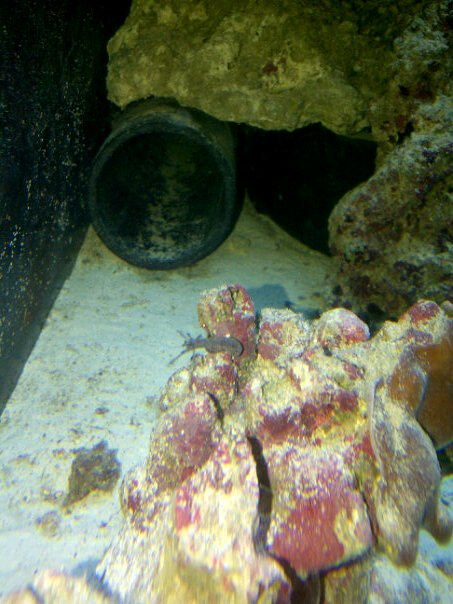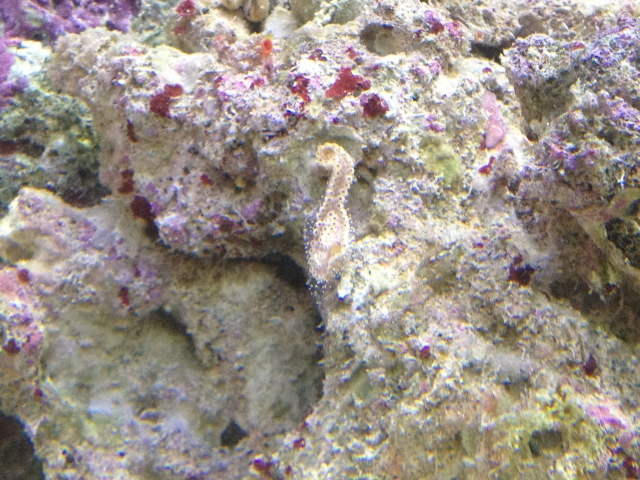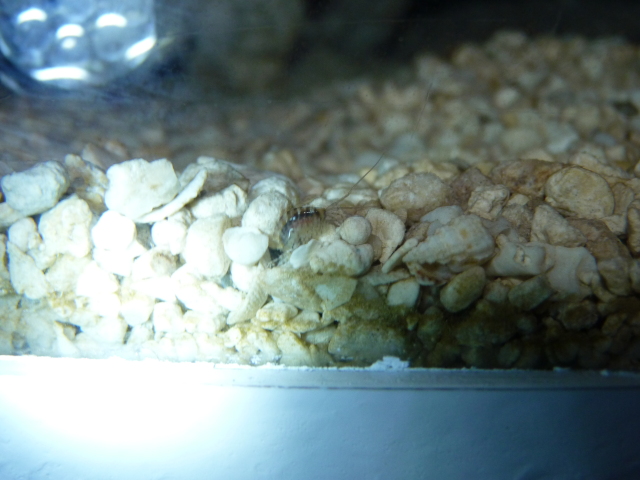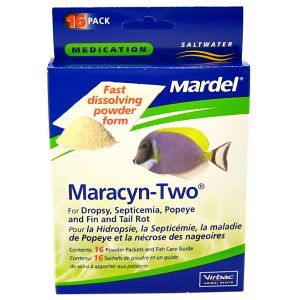Questioni have a 150 gallon aquarium that is saltwater and i came down with a case of ick after adding a emperor angelfish to my aquarium and i used this medication for approximately about 2 days now and it says that you should use for 3 days and now my angelfish has cloudy eyes and laying on the side with some labored breathing and i wanted to know what can i do to help because i don't want him to die.i was thinking of downing a large water change.but i have no water made up so i was wondering if i could use freshwater straight from the tap to make up some saltwater and use a really good water conditioner to help to treat the water really fast what would you recommend that i do because i truly would like to save this fish also the active ingredients in the quick cure meds is formalin and malachite green,also i also seeing a little fin deterioration but i do not know if that coming from the hermit crabs picking at its tail and fins while its laying on its side or what.
AnswerHi Alaica. Have you tested your water parameters lately? Cloudy eyes are common in a fish that has or does have a bad case of ick. Basically the parasite attaches itself to the fish leaving small open wounds. These wounds make the fish very susceptible to bacterial infections. If you are noticing the fins are frayed in any way it is most likely because on top of getting ich your angel has a bacterial infection. I would suggest getting the fish out of your main tank and into a quarantine tank if possible. You may have to treat with an antibiotic as well as continue treatment for ich.
As for the stuff you are using to treat ich, it may be an ineffective treatment. Basically formalin is a form of formaldehyde. This medication is absorbed by the tissues in your fish where it remains indefinitely. The cells are not killed just altered and so, while the usual list of anti-bacterial, anti parasitic agents, such as tetracycline, amikacin, baytril, copper and the like poison their respective bacterial or parasite enemies and are then flushed from the system by the kidneys and liver, formalin is retained in the now altered tissue structures of the living organism. Not a very good choice even though it is deemed as a safe treatment it really is not a good one to use on a fish who is already stressed out by the parasite itself. You should put some carbon in your system and treat your fish with copper for the ich and an antibiotic like kanamycin for any secondary bacterial infections.
Used by itself or more commonly with marine fishes, in concert with formalin, Malachite Green is a powerful, though toxic medication with anti-protozoal and anti-microbial properties. A few cautionary remarks should always be associated with its use: To carefully measure the ACTUAL gallonage of the treatment system, as overdosing with Malachite is very easy to do... To take care not to spill or splash this material around as it is the dickens to get the bluish stains out of clothing, skin... or aquarium silicone. To use with caution period, as Malachite Green is toxic... poisoning your livestock, the "good guy" bacteria populations in your system, as well as (hopefully) the pathogens you hope to be rid of. Malachite Green's toxicity is temperature and pH dependent, being more toxic with rising temperature and lower pH. One surprising item about Malachite use is its inactivation (oxidation) with exposure to light. Malachite Green treated systems should have their lights turned off. I have rarely seen this mentioned with product labels or inserts. Malachite Green should be utilized in a separate treatment tank as it is quickly absorbed by detritus, natural gravels and most all plastics. Unfortunately, Malachite Green is suspected of being a carcinogen as well as teratogen (a chemical that can alter DNA make-up), and respiratory poison. It is NOT to be used lightly. This material is also phytotoxic... poisonous to aquatic plants and terrestrial ones that may come in contact with it from splash, spray or your dumping aquarium water on them from your treated tank. So... is the use of Malachite Green "worth it"... That is, worth the risk of poisoning your livestock... A qualified "yes", particularly for freshwater and pond use... for fungused eggs for production facilities of these fishes, common ich and velvet problems... But not warranted in marine applications... Just too dangerous, easy to make mistakes with, with seawater use. Better to stick with tried and true copper formulations that can be tested for, and have a bit wider efficacy.
I took some of these warnings off of another website to let you know about the medication you are using. In my opinion you should do a large partial water change and add fresh activated carbon to get this very harmful medication out of your tank as soon as possible. There is no quick cure for ich and copper is the safest and most effective way to treat a fish for ich. What is happening with your fish is it is slowly being poisoned on top of having a parasitic infection.
When ever your fish comes down with an ailment weather it be a bacterial or parasitic infection there are two things that you have to consider. What is the fishes' stress level and are the nutritional requirements of that fish being met. Stress in a fish from moving to a new tank, shipping, collection, bullying, poor diet and poor water quality will lower the fishes' immune system making it more susceptible to all kinds of infections and parasites. Often just correcting the stress level on the fish will bring about a rapid recovery of most illnesses. I have seen a fish become cured of a parasite infection without any treatment although, The parasite will lay dormant until something comes along and stresses the fish out again. Now think of the toxic medication you are adding to your tank. These two ingredients will destroy much of your good bacteria which in turn will lower your water quality. They also are very toxic to the fish if even slightly overdosed(remember if you have a 100 gallon tank and you have gravel on the bottom and some rockwork as well you don't have 100 gallons of water in your tank because some of the water is displaced by the decorations and gravel)and that adds further stress to an already stressed out fish. Thus lowering its immune system even more and leaving the fish susceptible to even more infections.
That said, get your water quality under control and rid your tank of as much of the medication as possible. You should move the ailing fish into a separate hospital tank with very high quality water and good filtration. See how the fish does for a day or two and treat for any parasites with a copperbased medication(which can me monitored to ensure you are not overdosing) and any signs of bacterial infection with a broad spectrum antibiotic like kanamycin. Keep a close eye on water quality and continue to do partial water changes as needed making sure to add medication in the correct dosage to the newly made up saltwater used in those partials.
I am sorry that these companies mislead its consumers who may not know all the risks of using their medication. In my opinion this kind of treatment should not even be labeled for use in a saltwater tank and more of its warnings should be put on the label. But now you know!

 what type of worm good or bad?
Question
worm
We found a clear worm like creatur
what type of worm good or bad?
Question
worm
We found a clear worm like creatur
 Do shrimp eat crabs
QuestionQUESTION: Hi,
I bought about 40lbs of live roc
Do shrimp eat crabs
QuestionQUESTION: Hi,
I bought about 40lbs of live roc
 eggs or something in my tank
Question
eggs?
Hi, i have noticed what looks lik
eggs or something in my tank
Question
eggs?
Hi, i have noticed what looks lik
 strange critters
QuestionQUESTION: I have a 65 gal saltwater set up 30 d
strange critters
QuestionQUESTION: I have a 65 gal saltwater set up 30 d
 my clownfish have white nungus
Questionhi had 4 clown fish and two died they are havin
my clownfish have white nungus
Questionhi had 4 clown fish and two died they are havin